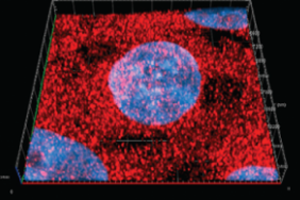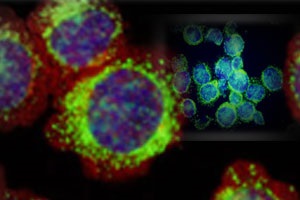Alzheimer’s disease is characterized by the formation of senile plaques in the brain. These extracellular deposits are mainly composed of the abnormally aggregated Ab peptides, which production is under the control of a set of enzymes named secretases.
Melatonin, a naturally occurring hormone widely used for sleep disorder, may provide a protection against Alzheimer’s disease by controlling the non amyloidogenic a-secretases. Dr. Bruno Vincent and his research team have recently found that sub-micromolar concentrations of melatonin can up regulate ADAM10 and ADAM17 catalytic activities in neuronal and non neuronal cells. They also established that this beneficial effect requires melatonin receptors activation, ERK phosphorylation and the binding of transcription factors to restricted areas of ADAM10 and ADAM17 promoter regions. Altogether, this study unveils a new and original mechanism through which melatonin could reduce Ab production and further underlines the preventive rather than curative nature of melatonin regarding Alzheimer’s disease treatment.

Shukla M(1), Htoo HH, Wintachai P, Hernandez JF, Dubois C, Postina R, Xu H, Checler F, Smith DR, Govitrapong P, Vincent B. Melatonin stimulates the nonamyloidogenic processing of βAPP through the positive transcriptional regulation of ADAM10 and ADAM17. J Pineal Res. 2015 Mar; 58(2):151-65. doi: 10.1111/jpi.12200. Epub 2014 Dec 27.


![]()



